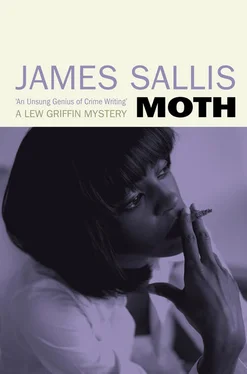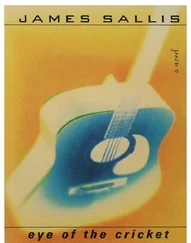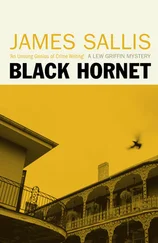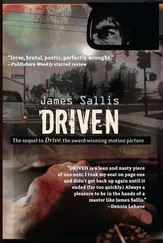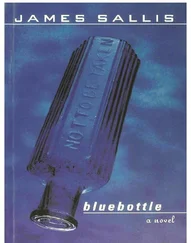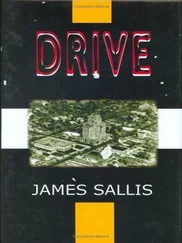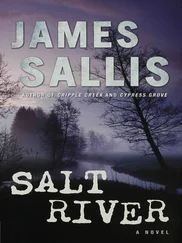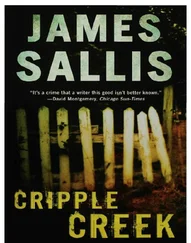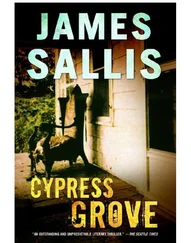James Sallis - Moth
Здесь есть возможность читать онлайн «James Sallis - Moth» весь текст электронной книги совершенно бесплатно (целиком полную версию без сокращений). В некоторых случаях можно слушать аудио, скачать через торрент в формате fb2 и присутствует краткое содержание. Жанр: Криминальный детектив, на английском языке. Описание произведения, (предисловие) а так же отзывы посетителей доступны на портале библиотеки ЛибКат.
- Название:Moth
- Автор:
- Жанр:
- Год:неизвестен
- ISBN:нет данных
- Рейтинг книги:3 / 5. Голосов: 1
-
Избранное:Добавить в избранное
- Отзывы:
-
Ваша оценка:
- 60
- 1
- 2
- 3
- 4
- 5
Moth: краткое содержание, описание и аннотация
Предлагаем к чтению аннотацию, описание, краткое содержание или предисловие (зависит от того, что написал сам автор книги «Moth»). Если вы не нашли необходимую информацию о книге — напишите в комментариях, мы постараемся отыскать её.
Moth — читать онлайн бесплатно полную книгу (весь текст) целиком
Ниже представлен текст книги, разбитый по страницам. Система сохранения места последней прочитанной страницы, позволяет с удобством читать онлайн бесплатно книгу «Moth», без необходимости каждый раз заново искать на чём Вы остановились. Поставьте закладку, и сможете в любой момент перейти на страницу, на которой закончили чтение.
Интервал:
Закладка:
“Also self-employed.”
“Yeah, well, it does tend to be an at-home kind of industry. But I’m saying they might take it personally, some of the others. Especially if they find you getting in their faces again.”
“I understand.”
“Take care then, Griffin. You get in too deep, you give me a call.”
“So you can lead a cavalry charge?”
He laughed. “Hell no. So I can step back out of the way.”
Chapter Twenty
Whenever things begin to look absolutely, unremittingly impossible and I find myself sinking into despair for myself and the human race, I read Thomas Bernhard. It always cheers me up. No one is more bitter, no one has ever lived in a bleaker world than Thomas Bernhard.
The only contender is Jonathan Swift, whose epitaph might do as well for Bernhard: “He has gone where fierce indignation can lacerate his heart no more.”
All Bernhard’s work is visible struggle: invectives against his Austrian homeland, combats occurring solely within the human mind and imagination, blustery dialogues that finally surrender pretense and paragraphs to become clotted, hundred-page soliloquies. And beneath it all, his certainty that language above all embodies humanity’s refusal to accept the world as it is, that it is a machinery of essential falsehoods and fabrications.
Unable to get back to sleep following Sergeant Travis’s visit that afternoon, having no Thomas Bernhard at hand and little prospect of finding any there in the hinterestlands, I did the next-best thing. I made a cemetery run.
Confederate cemeteries are scattered throughout the South, some with only a half-dozen or dozen gravesites, others sprawling over the equivalent of a city block. They’re often grand places, with elaborate headstones and inscriptions, generally well-kept and — visited. And one of the most celebrated, I knew, was not far from Clarksville.
It was almost dark when I got there. You turned off the highway just past Faith Baptist Church (I stopped twice along the way to ask), drove down a narrow asphalt road (pulling to the shoulder whenever vehicles appeared on the other side) and onto a wider dirt one, then through a modern graveyard of low headstones and bright green grass into a copse where half-lifesize statues of soldiers reared up among the trees. Still farther along lay a separate Negro graveyard with wooden markers.
The trees were mostly magnolias, mostly dormant now. Clusters of leaves, still green but curiously unalive, hung as though holding their breath, waiting.
Marble and cement soldiers, horses, angels, beloved dogs, pylons, pinnacles, sad women.
A squat obelisk of veined marble bearing the figure of a child, though he wore an officer’s uniform: Let Us Remember That After Midnight Cometh Morn.
A casket-shaped headstone with a central spire of wrought iron: Honor. Family. Faith.
And on a small, simple marker hand-carved to resemble a scroll, far more appropriate to New Orleans (where it would have indicated the young man died in a duel, not war): Mort sur le champ d’honneur.
Poor ol’ Tom Jefferson with his slave mistress Sally Hemings and his two hundred slaves at Monticello and his denouncements of slavery as a great political and moral evil, knowing all the time he would suffer economic ruin if his own slaves were freed. And that the neighbors would talk something awful.
Life, Mr. Jefferson, is an unqualified, neo-Marxist bitch.
Everything comes down to simple economics, however fine-spirited we are.
Looking up, I saw that a white boy of twelve or so stood off at the side of the field with a shotgun cradled in his arms, watching me.
I nodded his way.
He nodded back and kept watching.
As Robert Johnson said: Sun goin’ down, boy, dark gon’ catch me here.
Maybe not a good idea, even this late in the American game. So I mounted my Mazda and rode into the sunset, leaving the dead, those dead, forever behind.
Chapter Twenty-One
Baby girl McTell died on November 19th, on a starless, overcast morning, a little after 2:00 A.M.
The phone in my motel room dredged me from sleep. Topmost levels of my mind came instantly awake; I waited as others drifted up to join them. Lights from a car in the lot outside made a shadow screen of my wall, everything outsize and tipped at odd angles as in old German Expressionist films. The car’s idle was set too low; every few seconds it began sputtering out and the driver had to tap the gas pedal.
“Yeah?” I said.
“Mr. Griffin?”
I said yes, and Doctor Arellano told me they had done all they could.
I thanked him, said I’d be in later to see to arrangements, and hung up. There was nothing to drink, or I would have drunk it. Outside, a car door slammed and a woman shouted, as the car pulled away, Damn you! You hear me? God damn you!
I splashed water on my face and sat for a while staring out into the darkness with late-night radio blathering behind me. Then I turned on water in the shower to give it time to warm while I shaved. I was climbing in when the phone rang again.
“Lew? Teresa. Becky Walden just called. The nurse who was taking care of our girl tonight. She knew I’d want to know. I’m so sorry, Lew.”
I watched dampness spread slowly over the carpet at my feet.
“Lew, are you okay?”
“Fine.” Clearing my throat, I said it again.
“Listen, it’s my night off. Would you like me to come over? Maybe it’s not a good idea for you to be alone tonight. I’m up anyway-I can’t ever sleep like a normal person, even on my nights off-and watching old movies. I could be right there, provided you don’t mind stay-at-home old clothes and aboriginal hair. There’s no sense in your going in to the hospital till morning, anyway. None of the administrators are there before nine.”
“I’d like you here,” I said after a moment.
“Then I’m on my way.”
Her stay-at-home old clothes turned out to be designer, French and recently pressed. The aboriginal hair looked pretty much the way it always did.
Myself, I’d barely managed a dash through the shower, jeans and a T-shirt.
“Lew,” she said when I opened the door, “I’d like you to meet Beth Ann, the only reason I’m still here in the States. I hope you don’t mind my bringing her along.”
Her companion was a stunning, tall woman with light brown skin, golden eyes and elaborate Old South manners. She took my hand and seemed for a moment on the verge of curtsying.
“Beth Ann’s from Charleston. She’s never been able to quite get over it.”
“Now that I’ve seen her, I’d be surprised if Charleston ever got over her. ”
“What did I tell you?” Teresa said to Beth Ann.
“You told me he was a good-looking charmer. And you were at least half right.”
“Does the word coquettish come to mind?” Teresa asked me.
“Among others,” I said. Mutual admiration was flowing thick in there. Pretty soon we’d have to hack our way through it with machetes.
“I’m sorry about the little girl, Mr. Griffin.”
“Lew. And thank you. Though I guess it’s what we all had to expect.”
“That doesn’t make it any easier.”
“No. No, it doesn’t.”
Teresa lowered a paper bag onto the dresser and reached in, pulling out three mugs, each fitted with its own lid. She handed one to each of us, kept one herself. Mine was so hot I could hardly hold on to it.
“Mistake,” Teresa said. “Trade. This is coffee: yours. B.A. and I have tea.”
“Tea’s wonderful. Split it with me?”
“Of course. But I didn’t know you were a tea drinker. You’ve always had coffee.”
“When in Rome,” I said.
Читать дальшеИнтервал:
Закладка:
Похожие книги на «Moth»
Представляем Вашему вниманию похожие книги на «Moth» списком для выбора. Мы отобрали схожую по названию и смыслу литературу в надежде предоставить читателям больше вариантов отыскать новые, интересные, ещё непрочитанные произведения.
Обсуждение, отзывы о книге «Moth» и просто собственные мнения читателей. Оставьте ваши комментарии, напишите, что Вы думаете о произведении, его смысле или главных героях. Укажите что конкретно понравилось, а что нет, и почему Вы так считаете.
